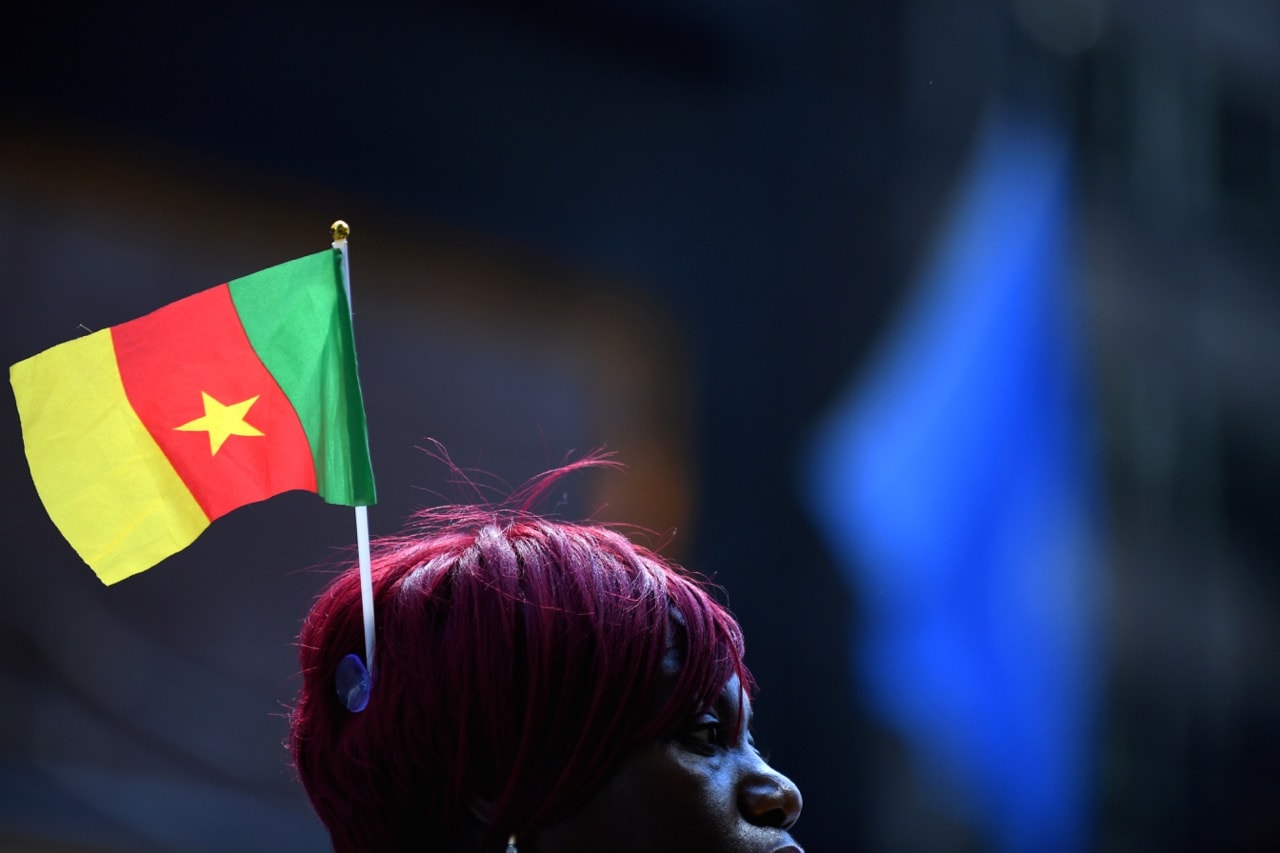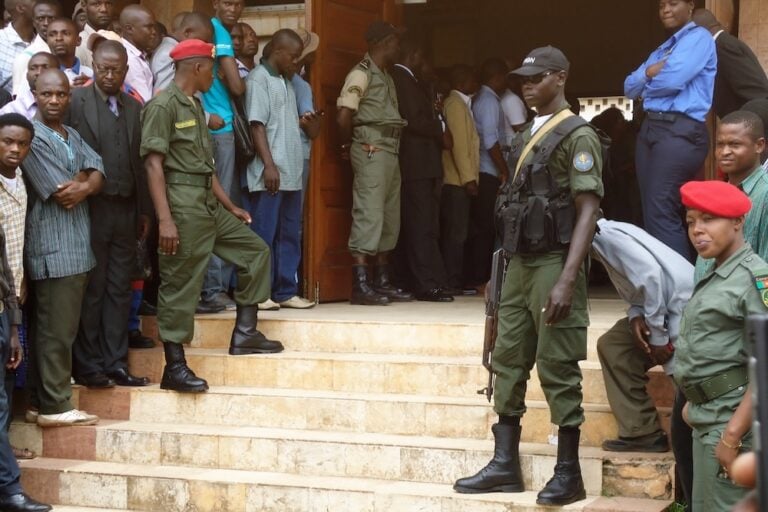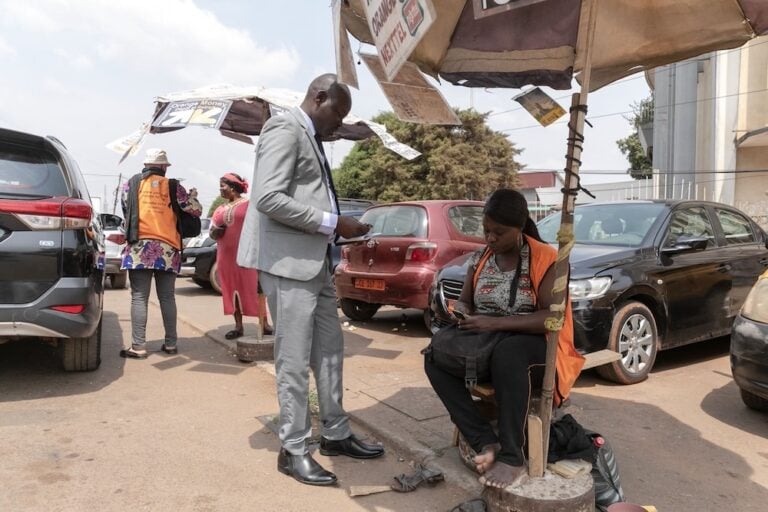Cameroon's broadly worded anti-terror law is being used by authorities to arrest and threaten local journalists, the Committee to Protect Journalists found in a report called "Journalists Not Terrorists."
This statement was originally published on cpj.org on 20 September 2017.
Cameroon’s broadly worded anti-terror law is being used by authorities to arrest and threaten local journalists, the Committee to Protect Journalists found in a report released today. The report, Journalists Not Terrorists: In Cameroon, anti-terror legislation is used to silence critics and suppress dissent, finds that despite a presidential decree ending legal proceedings against at least four journalists, the law that was used against them is still in place as next year’s elections approach.
The anti-terror law, enacted to counter the extremist group Boko Haram, has been used to silence journalists who report on the militant group, or on civil unrest in Cameroon’s English-speaking regions. Journalists arrested under the act, including Radio France Internationale broadcaster and CPJ International Press Freedom Award honoree Ahmed Abba, face military tribunal and harsh sentences, including potentially the death penalty. Abba is currently serving a 10-year sentence. Several journalists interviewed for the report said that Cameroon’s crackdown on the press has left them too scared to cover politics or sensitive issues.
“Cameroon is clearly using anti-state legislation to silence criticism in the press,” said CPJ Africa Program Director Angela Quintal. “When you equate journalism with terrorism, you create an environment where fewer journalists are willing to report on hard news for fear of reprisal. Cameroon must amend its laws and stop subjecting journalists – who are civilians – to military trial.”
The report, written by Quintal, includes recommendations to the Cameroonian government as well as to international organizations.



